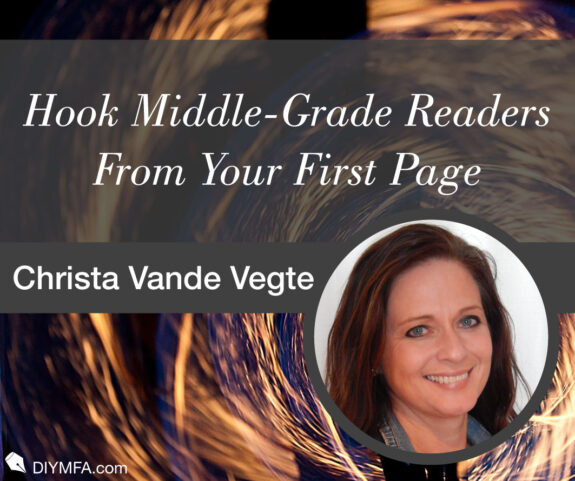Hey there, anglers. Imagine luring in your middle-grade readers from the get-go. I’m serious. You can do this.
Today, we will dive into techniques that will captivate your young readers right from your first page. We all know too well that the opening page of your book is super important, and it’s especially crucial when writing for a middle-grade audience.
Now, let’s pull out the tackle box and find some good bait to put on the hook. It’s time to reel those middle-schoolers in!
Middle-grade readers are a unique audience.
Most schools of middle-grade readers have developed the ability to read longer, more complex stories, but they still want captivating characters and exhilarating adventures. It’s our job as anglers, aka writers, to create incredible worlds that middle-graders will want to dive into. Additionally, this age group enjoys following a series; they get hooked on characters they feel a real connection with and can’t wait to bob along on the next chapter of their favorite character’s thrilling adventures.
The immense power of opening lines.
Now I know there is some new line in this tackle box… Ah, there it is. Ooh, and look at that shiny lure. Perfect!
The first lines of your book are super important and set the vibe. They serve as your reader’s first nibble, their initial glimpse into the adventures ahead. These lines must add excitement and give your reader a sense of curiosity. Dangle that shiny lure by introducing a mysterious object, strange event, or captivating character—all in just a few words.
To do this, you must think long and hard about every word, every phrase, and even how the sentence is put together. An excellent starting point for mastering this skill is to read The Best First Lines of Middle-Grade Books. This resource is a great introduction and can help you achieve incredible first lines in your own writing.
Establish a bond with the main character.
Middle-grade readers love seeing themselves mirrored in the stories they read. In the initial paragraphs of your first page, make sure your main character is someone your young readers can connect with. Be sure to present your main character’s hopes, fears, or everyday struggles. Their voice, thoughts, and personality must be loud and clear. Doing this will capture the hearts of your readers and create an instant bond between them and the main character.
Characters who resonate with middle-schoolers:
- Brave Explorer
- Determined Underdog
- Class Clown
- New Kid
- Super Hero
Side note: The average middle-grader falls within the age range of 8-12 years old, but remember, these kids tend to like reading about the bigger fish. Your protagonist may resonate well if you put them between the ages of 10 and 13.
Remember the power of humor.
Another technique to use on your story’s first page is to drop a line of comedy. Whether it’s a funny situation or a witty remark, laughter is a great way to hook your young readers and keep them engaged.
That’s why everyone loves a clownfish.
Wrap your first page up with notes of mystery.
Your first page’s conclusion should leave your young readers hungry for more. This means we should introduce a bit of juicy suspense, a tense moment, or an exciting scenario. However, this can be a tricky balance, as we need to provide just enough information to captivate them while also keeping them guessing.
Ways to keep young curious readers wanting to check out what lies beyond the reef is by incorporating elements of suspense, foreshadowing, or conflict. Adding a sense of urgency or curiosity can hook your young readers in and get them seriously swimming to know what will happen next.
DUN DUN, DUN DUN, DUN DUN DUN DUN DUN DUN DUN DUN DUN DUN
Remember, the first page of your middle-grade novel sets the tone for the rest of the story. So, make it count!
See, you can lure in your middle-grade readers from the get-go, making it impossible for them to resist flipping to the next page and getting completely immersed in your story.
Feel free to share your thoughts, methods, top tips, or opening lines in the comment section. I am eager to hear them.

Christa Vande Vegte has been passionate about storytelling since she was a child. She writes middle-grade fantasy and fiction. She also writes other children’s books and short stories. She is currently working on books two and three of the Little Bay Series.
You can also reach her on her Website, Facebook, Instagram, and Twitter.







